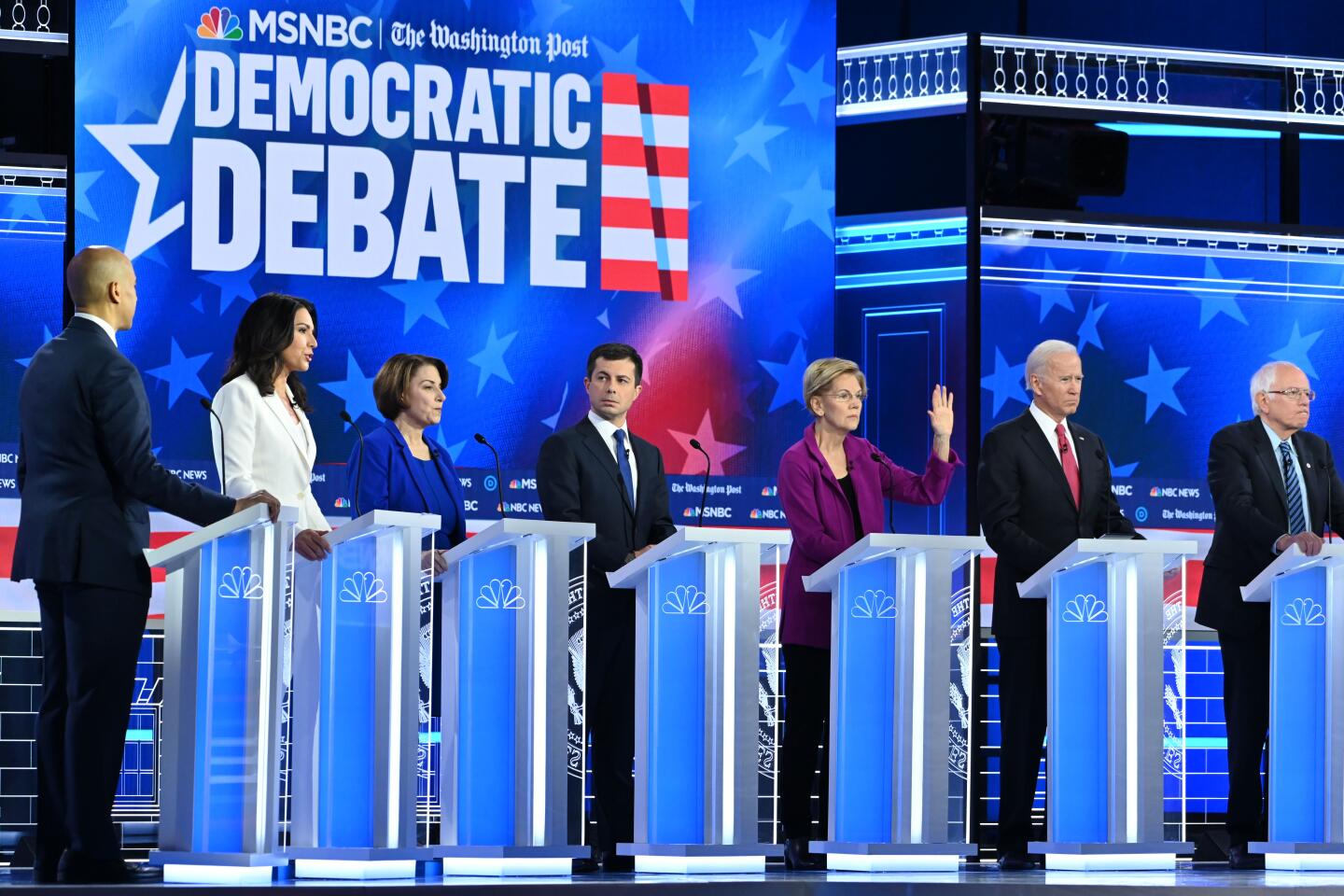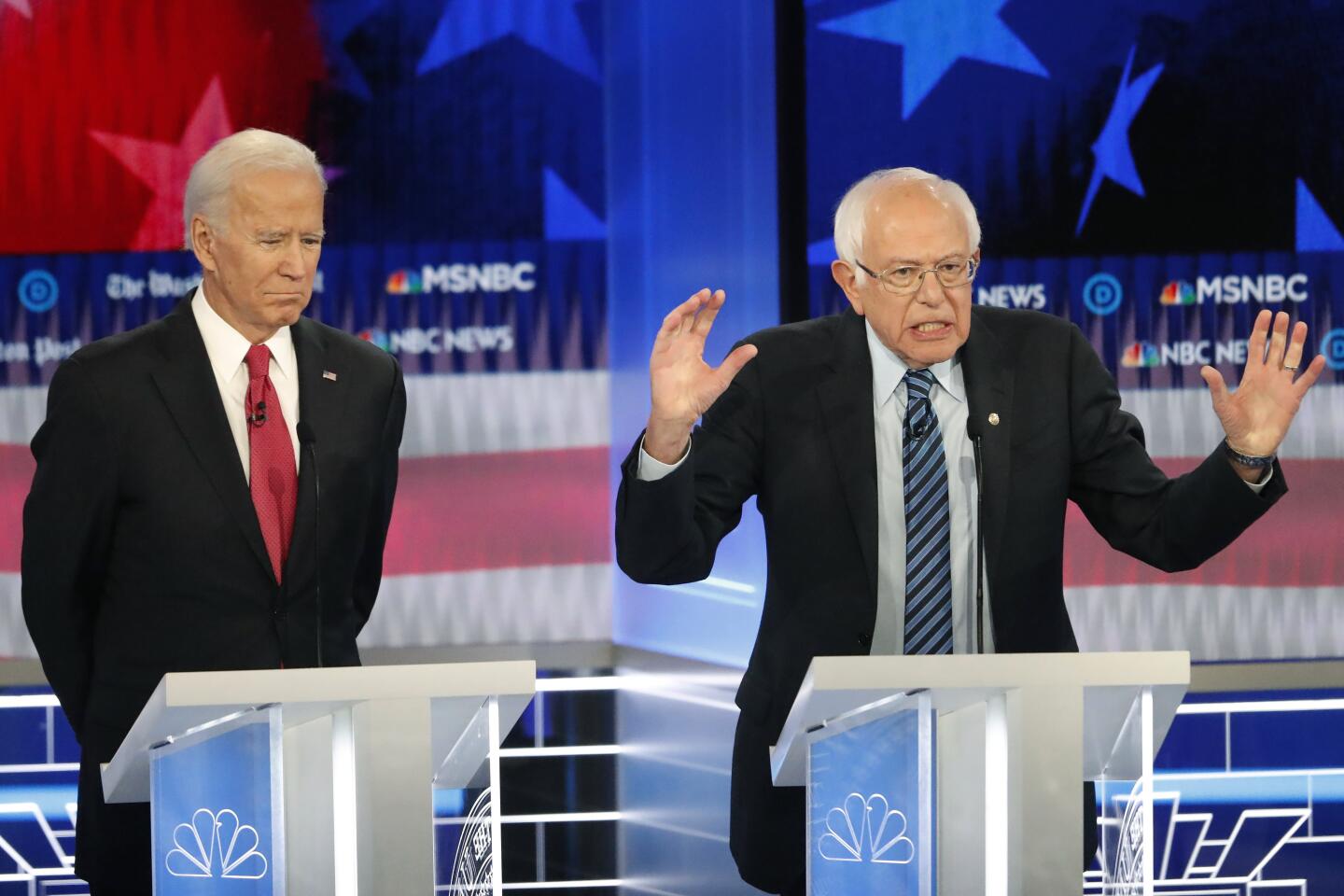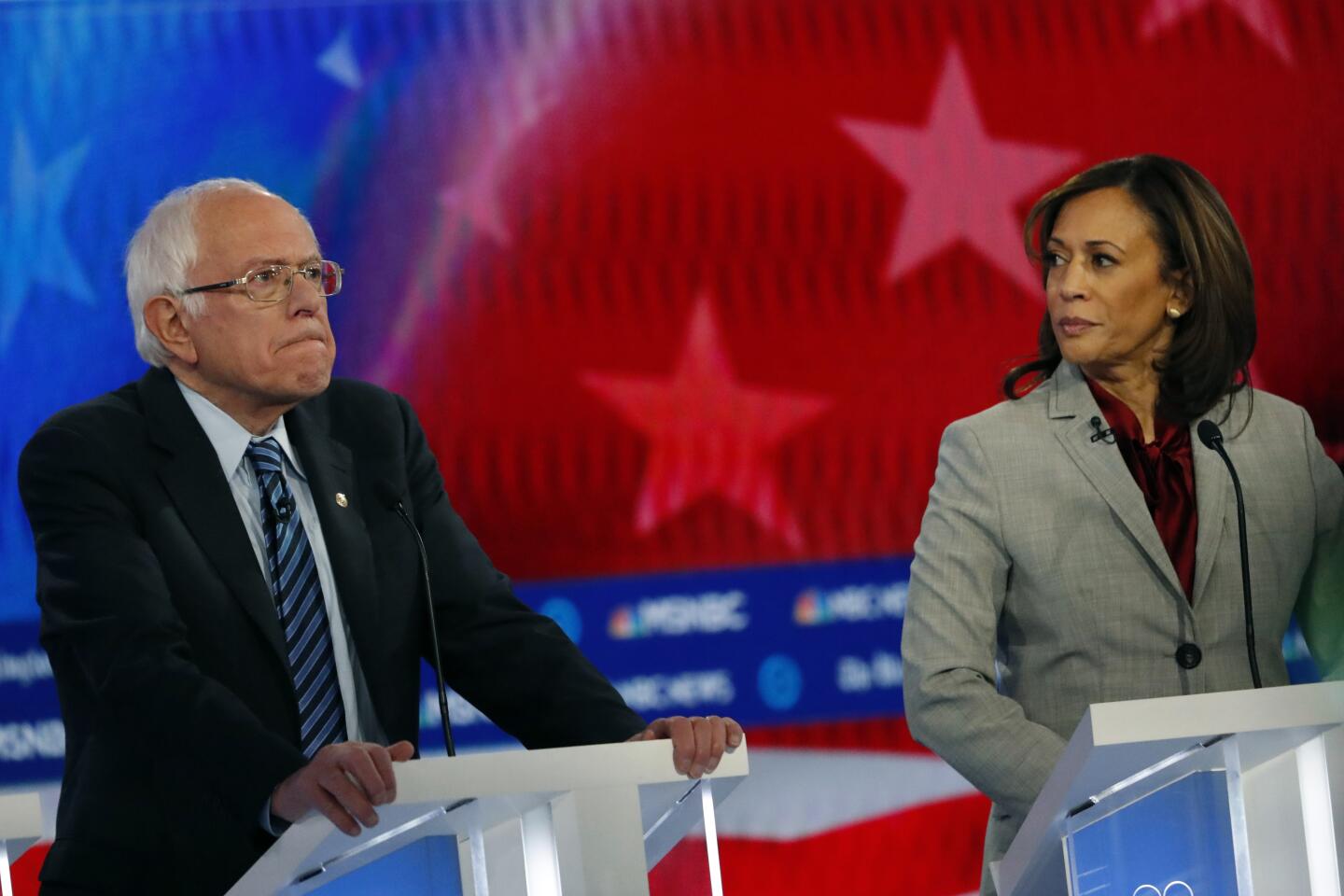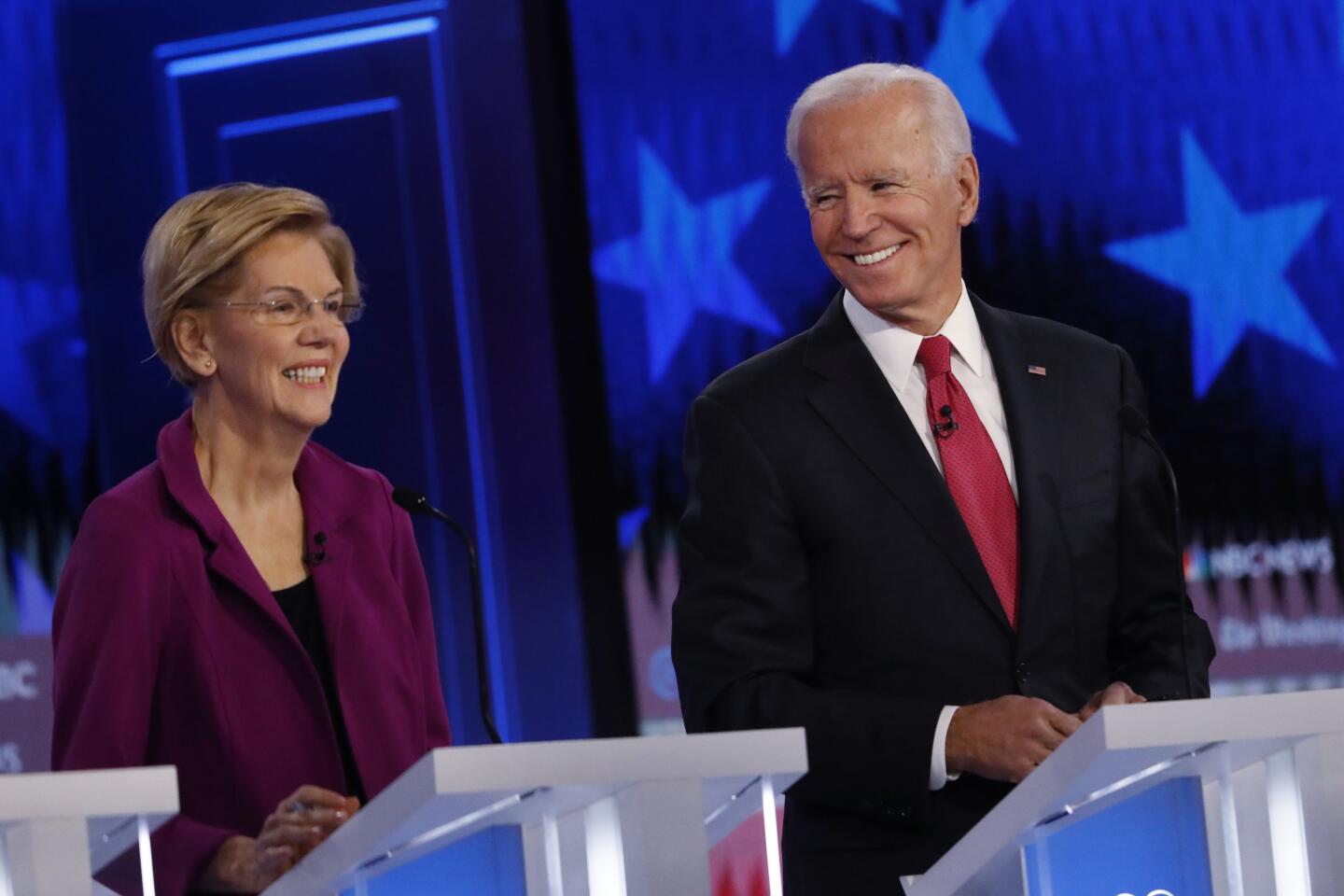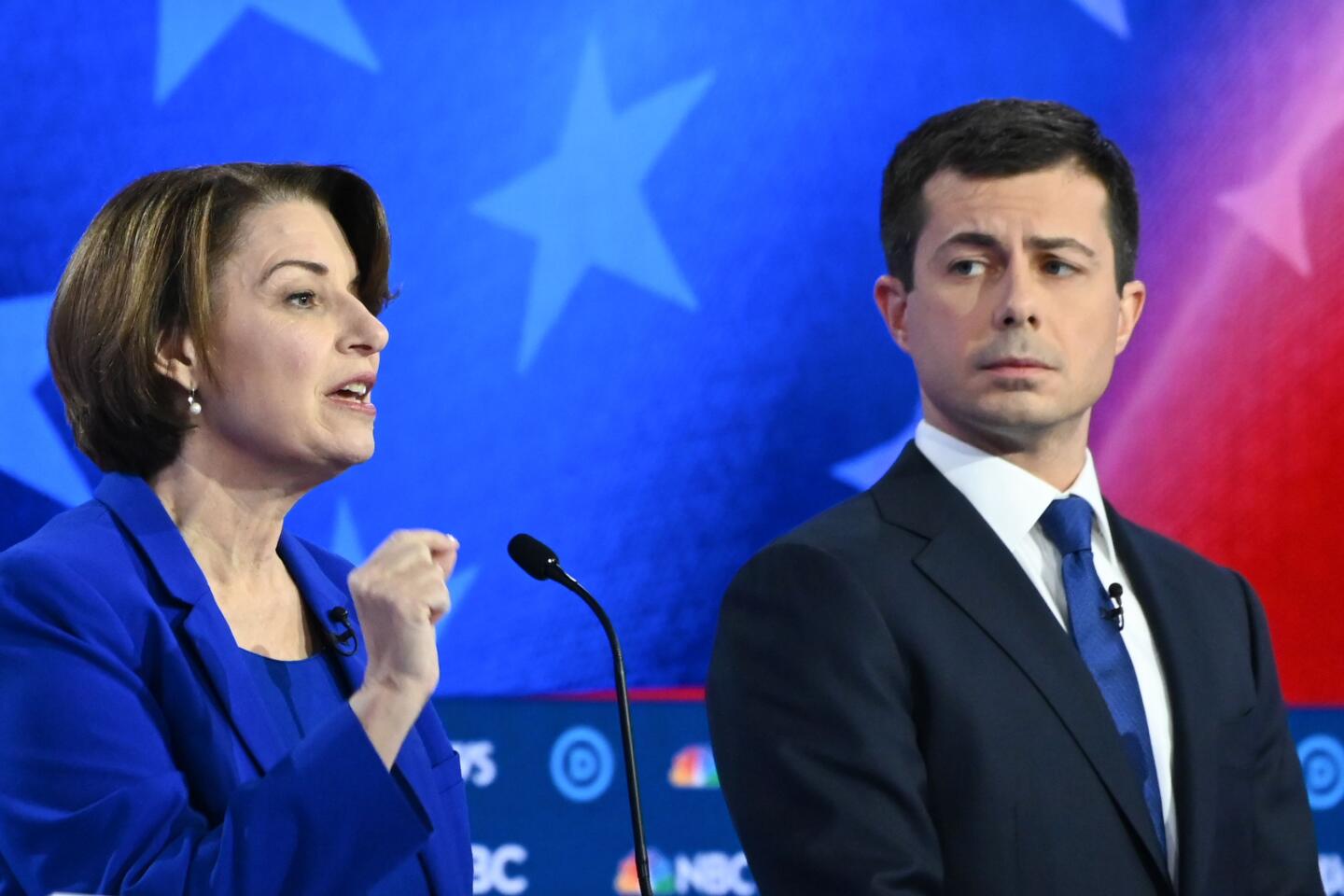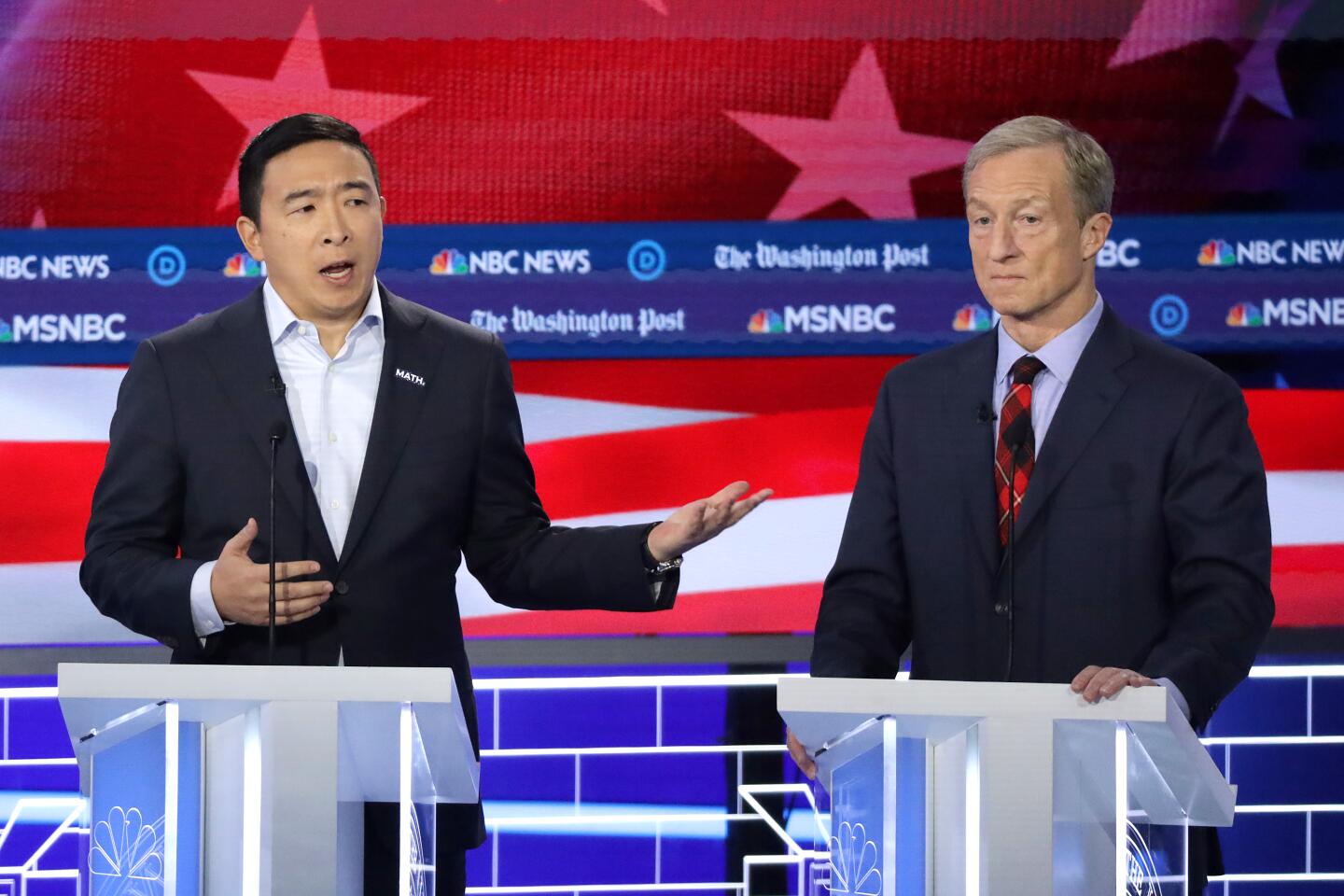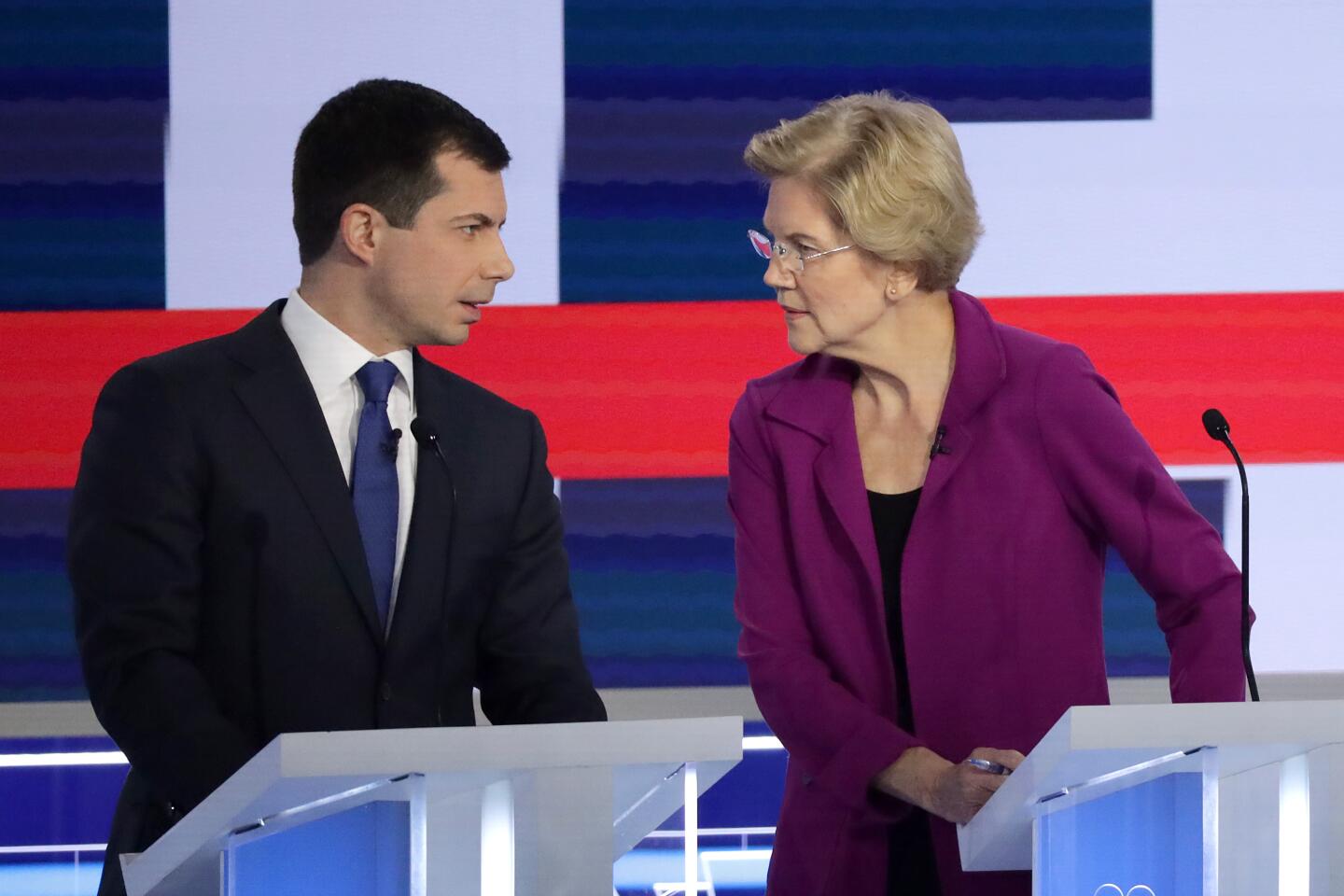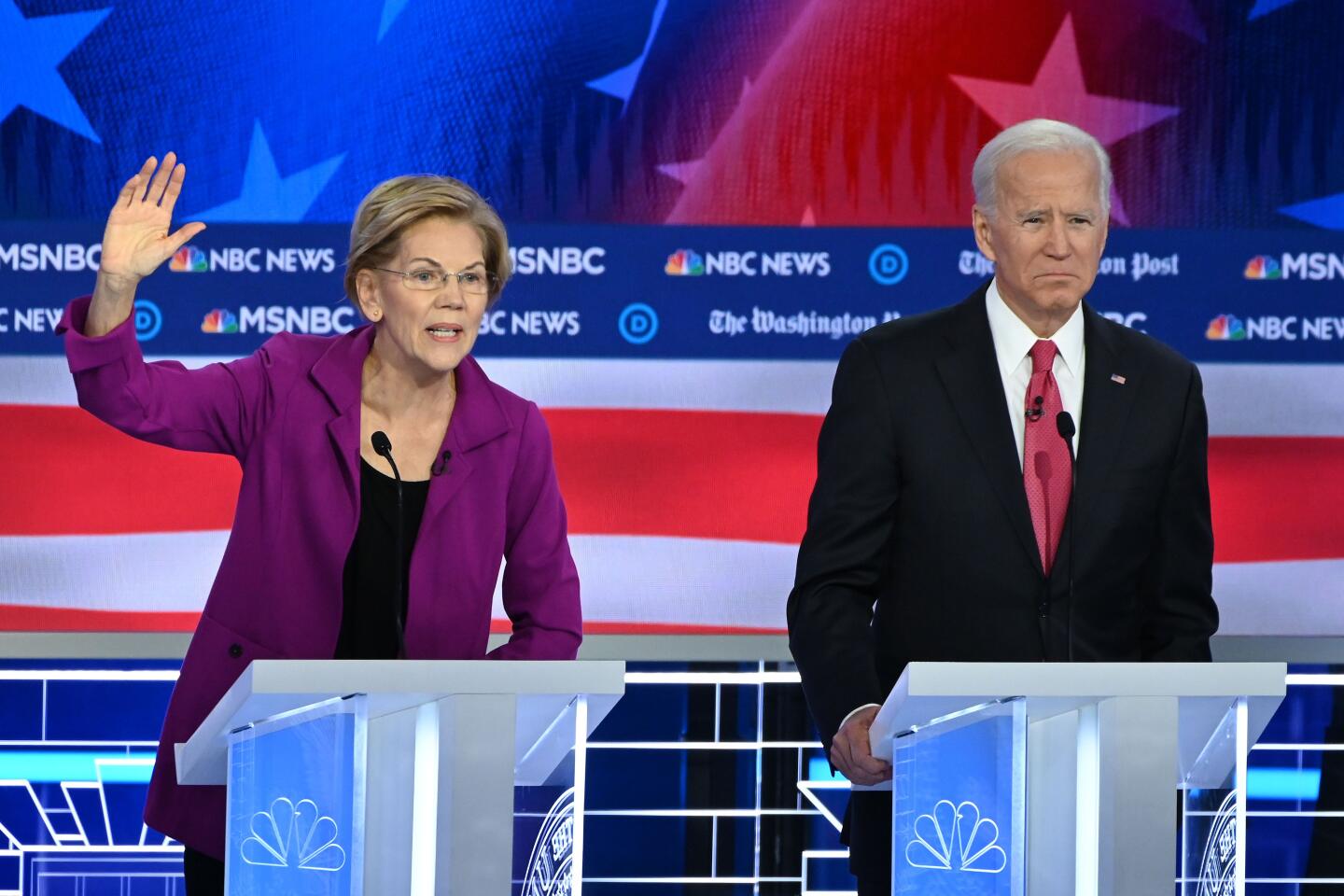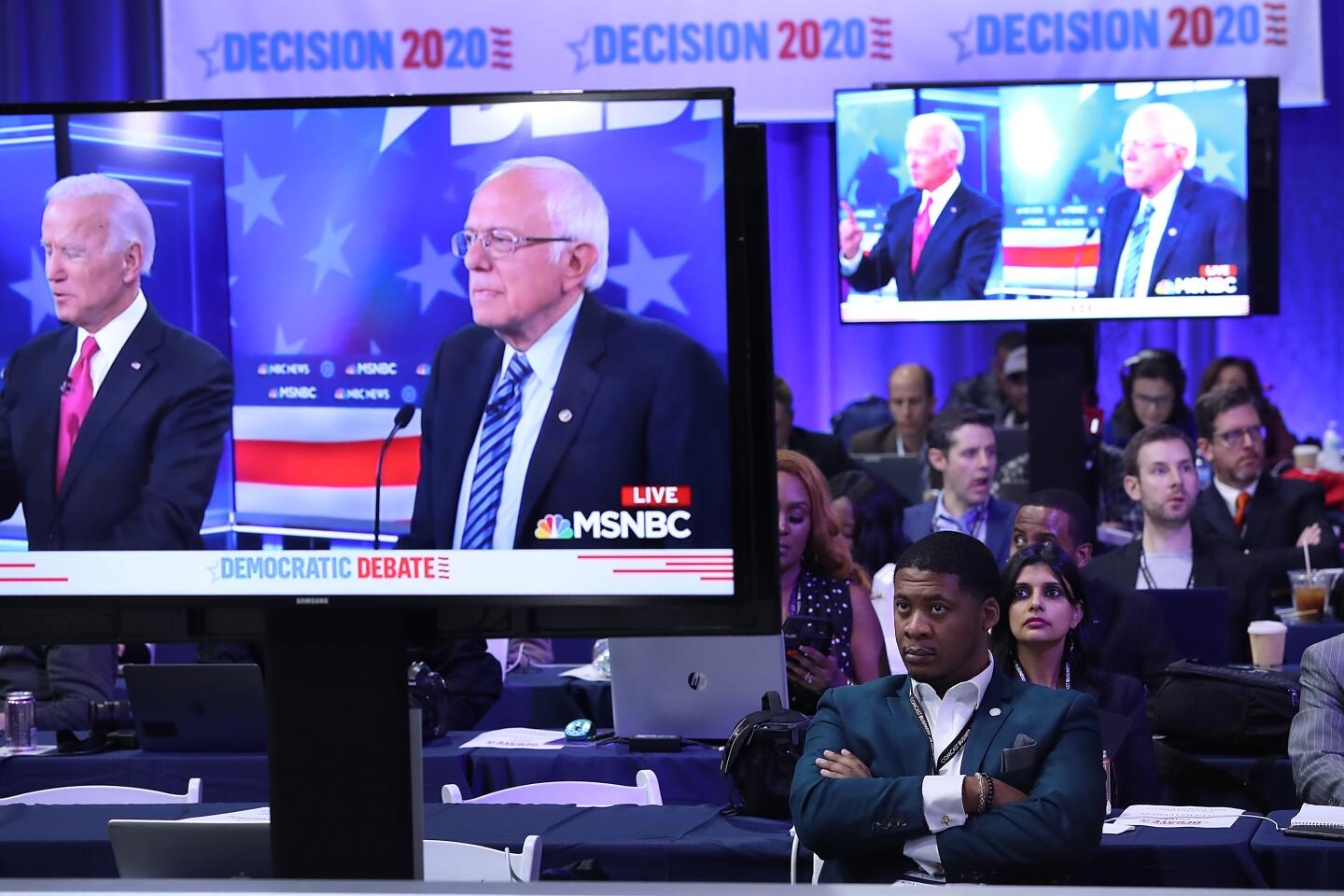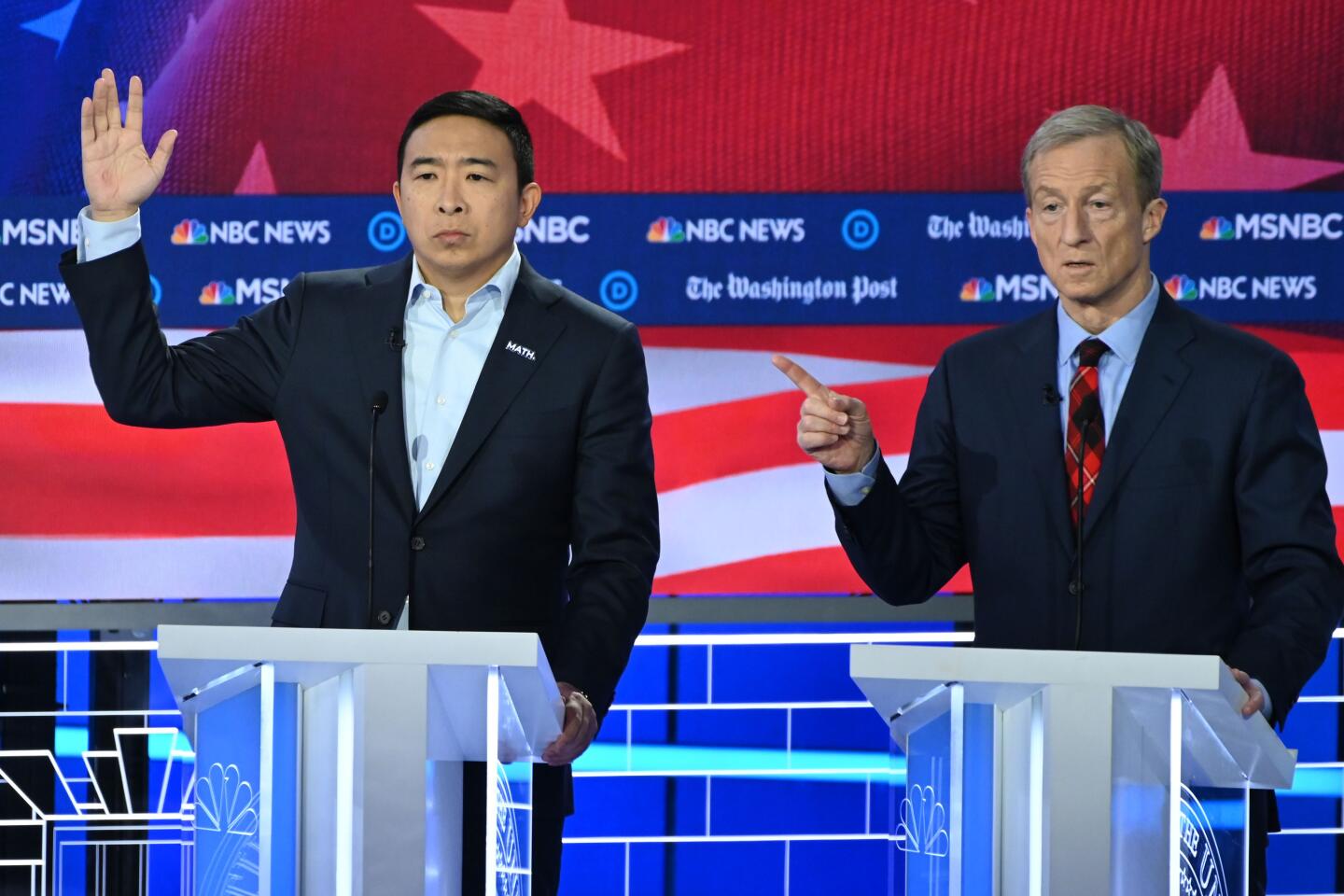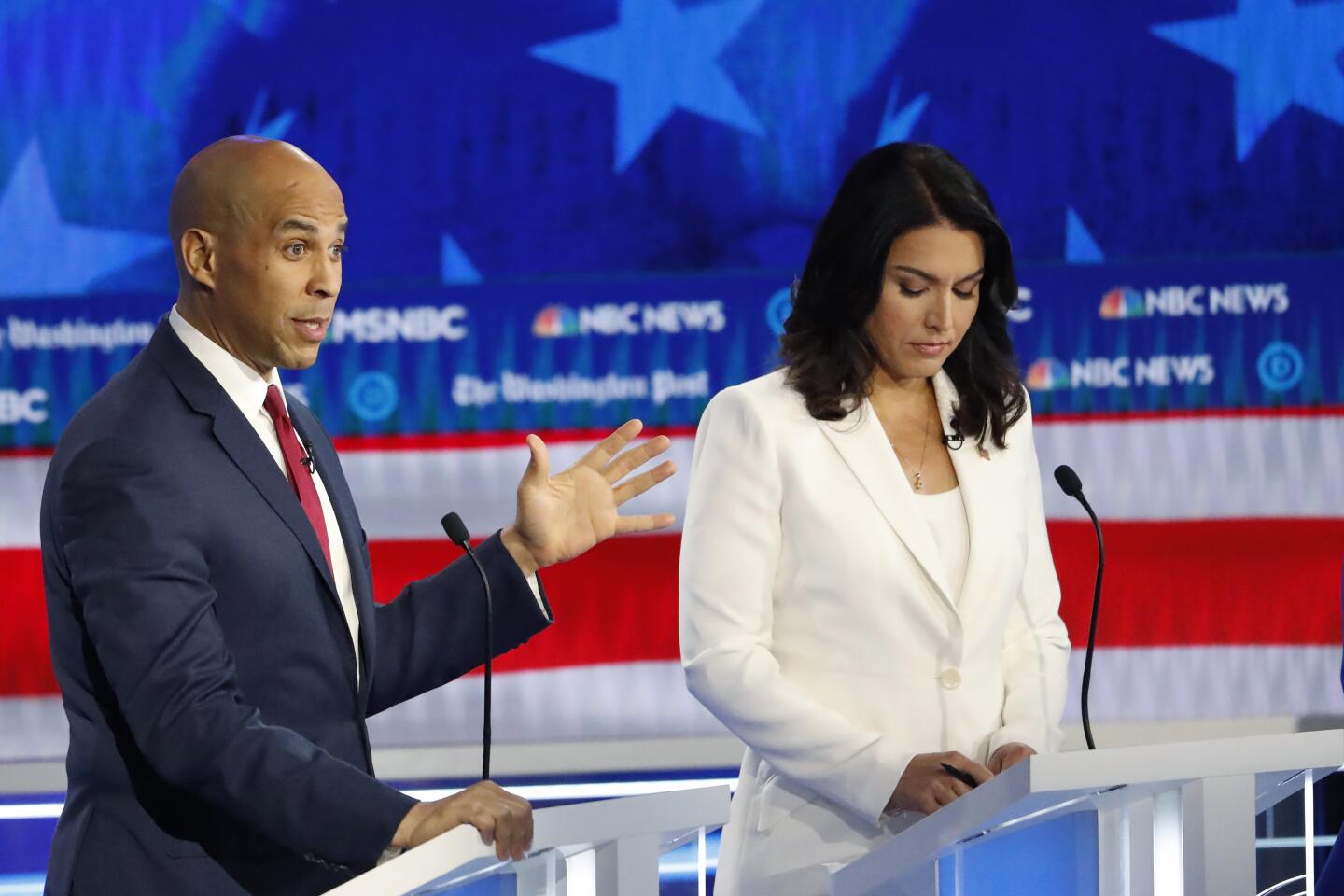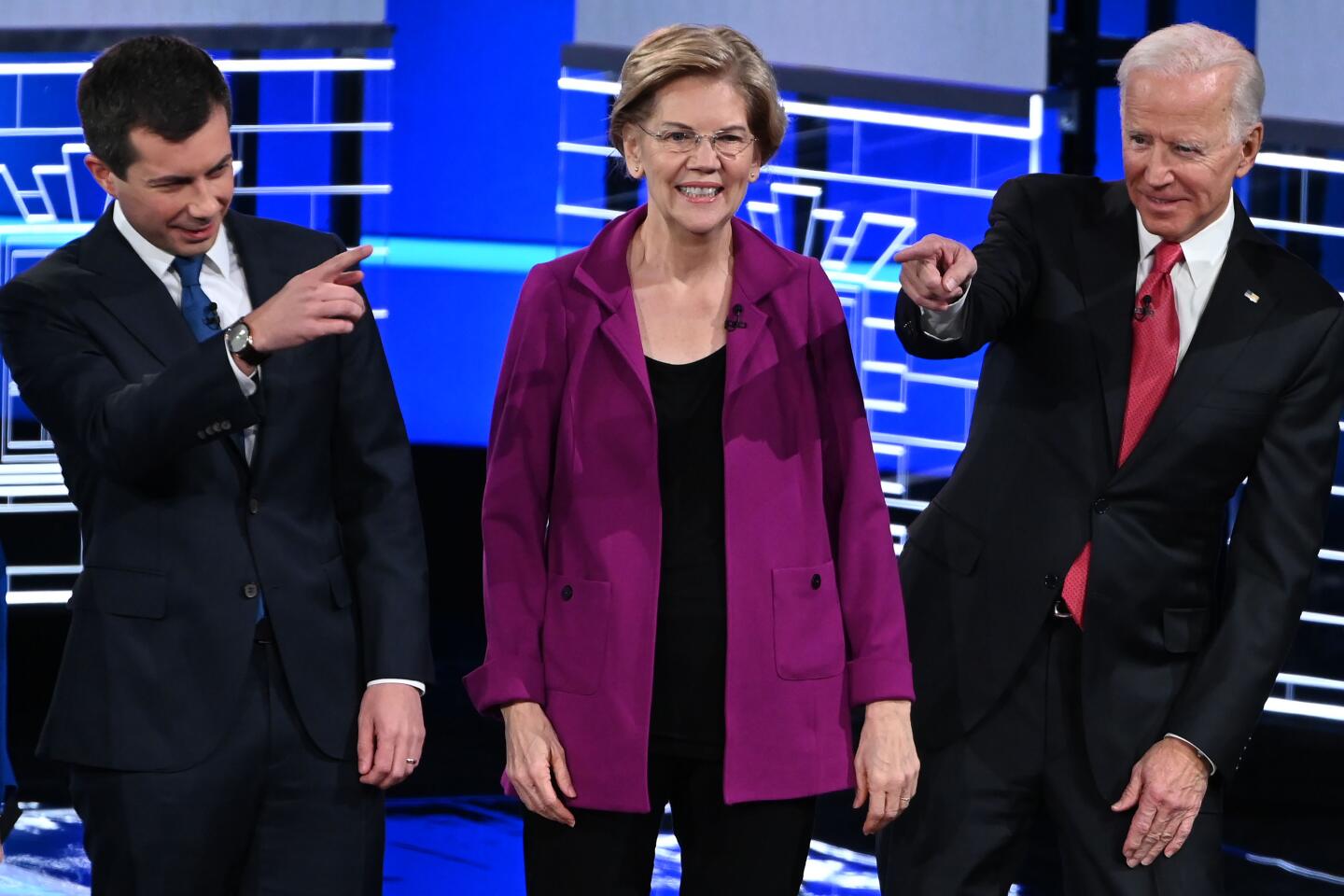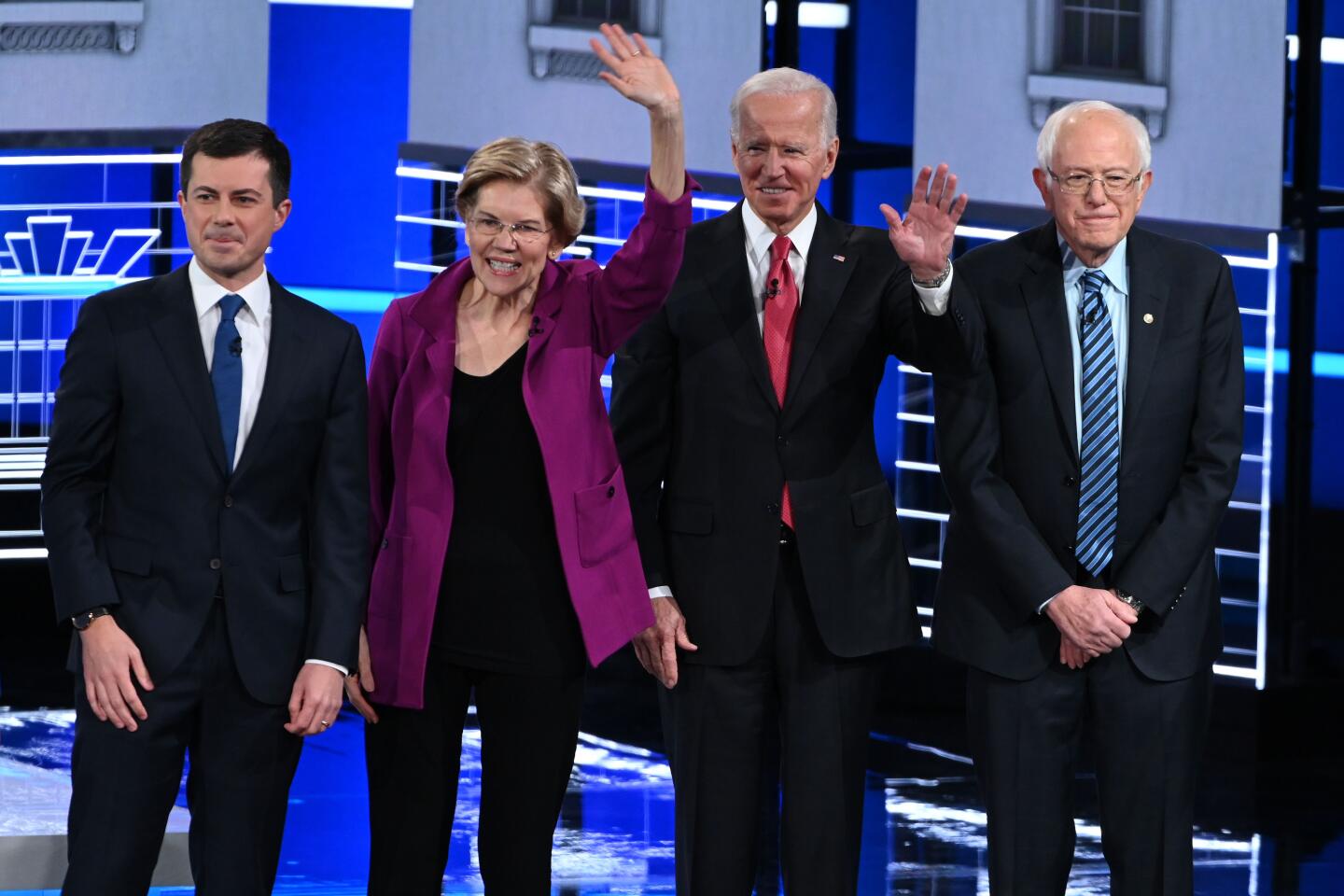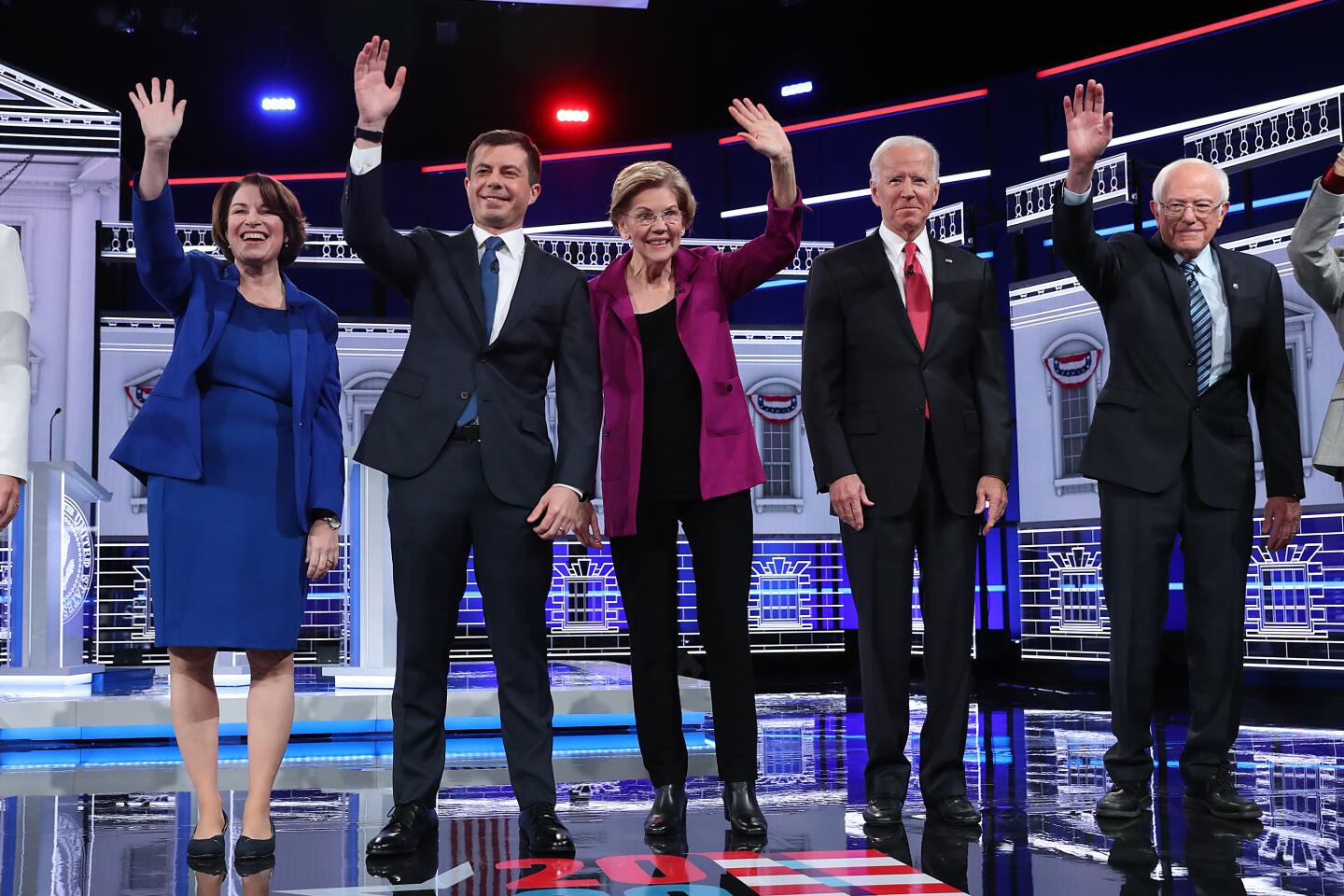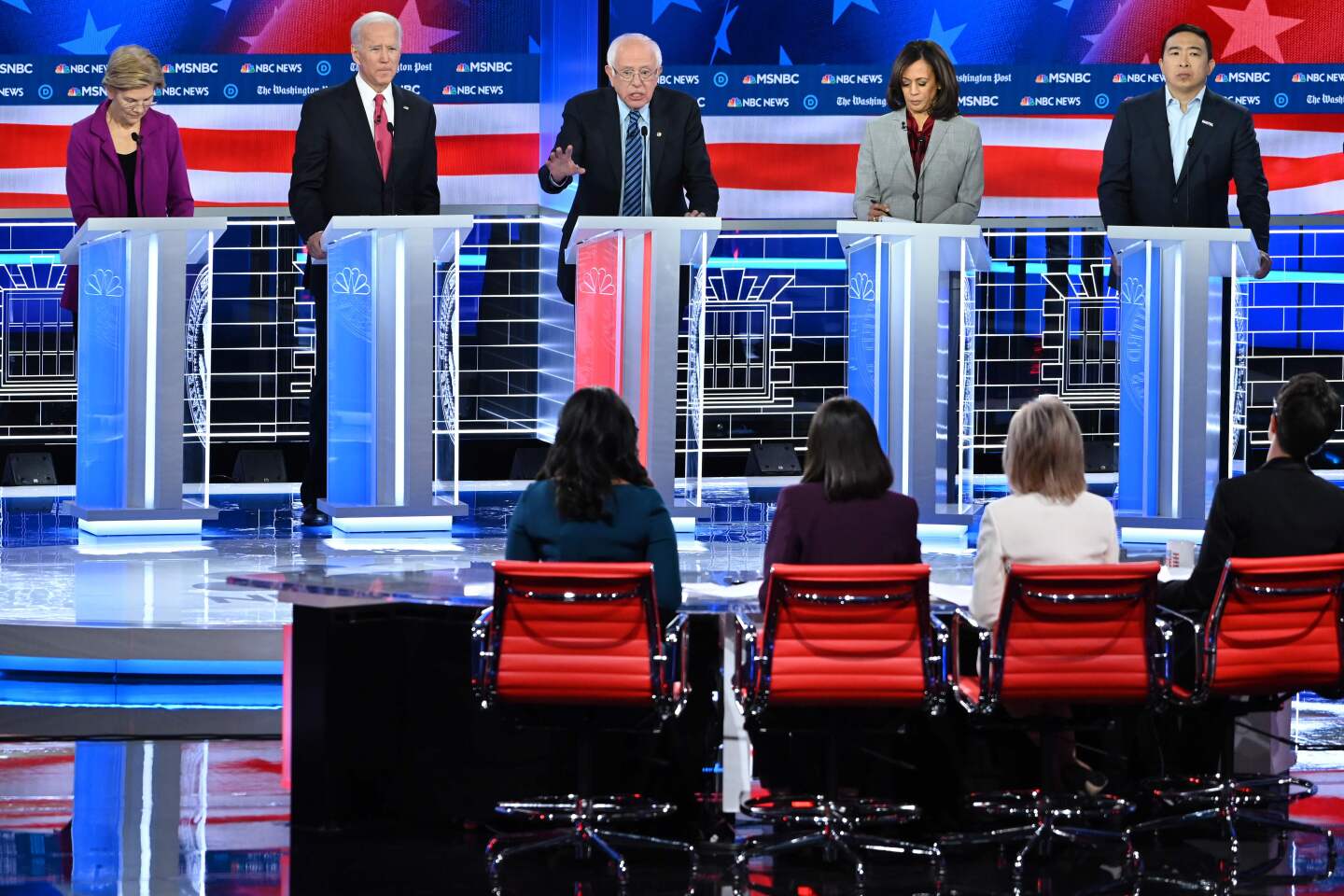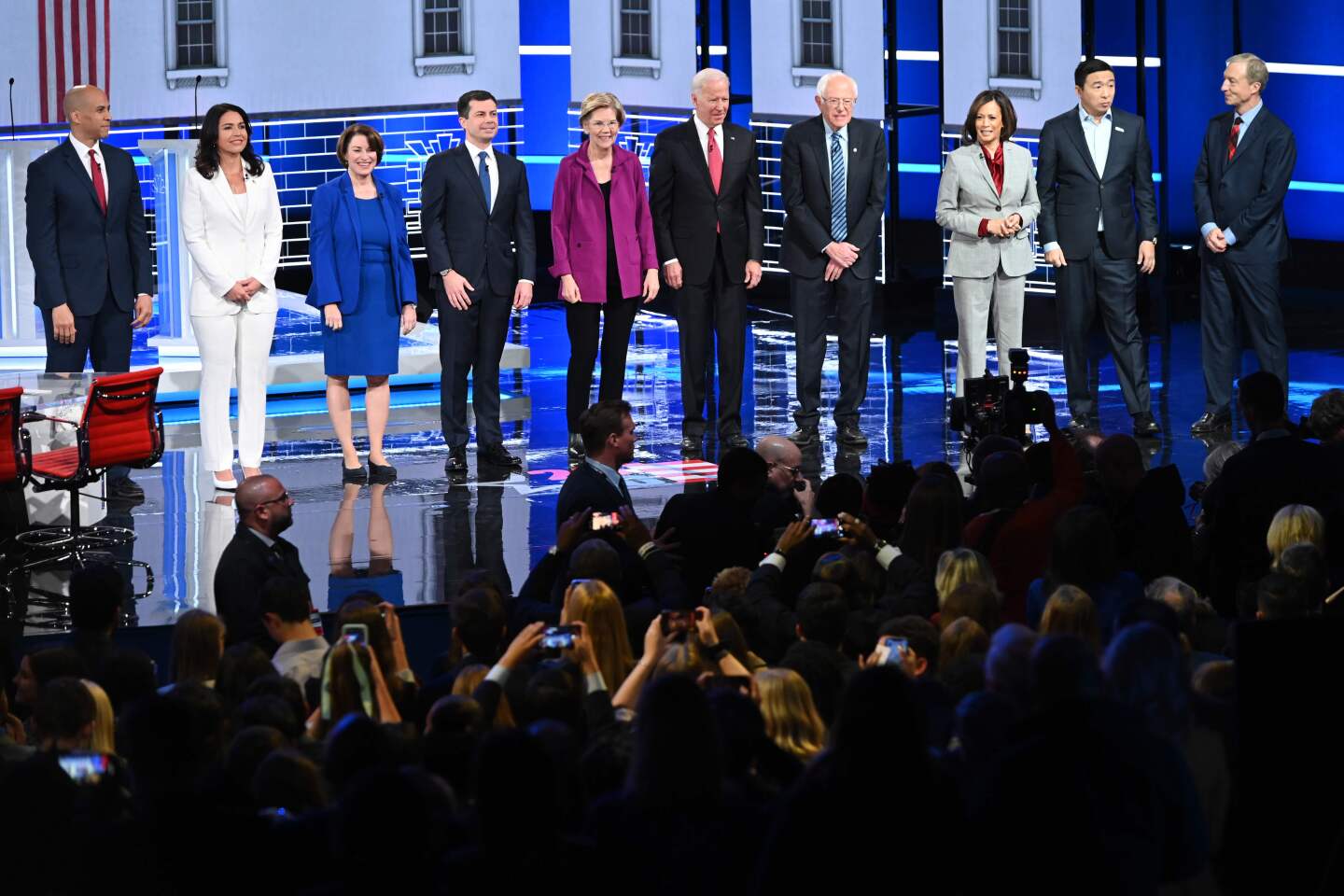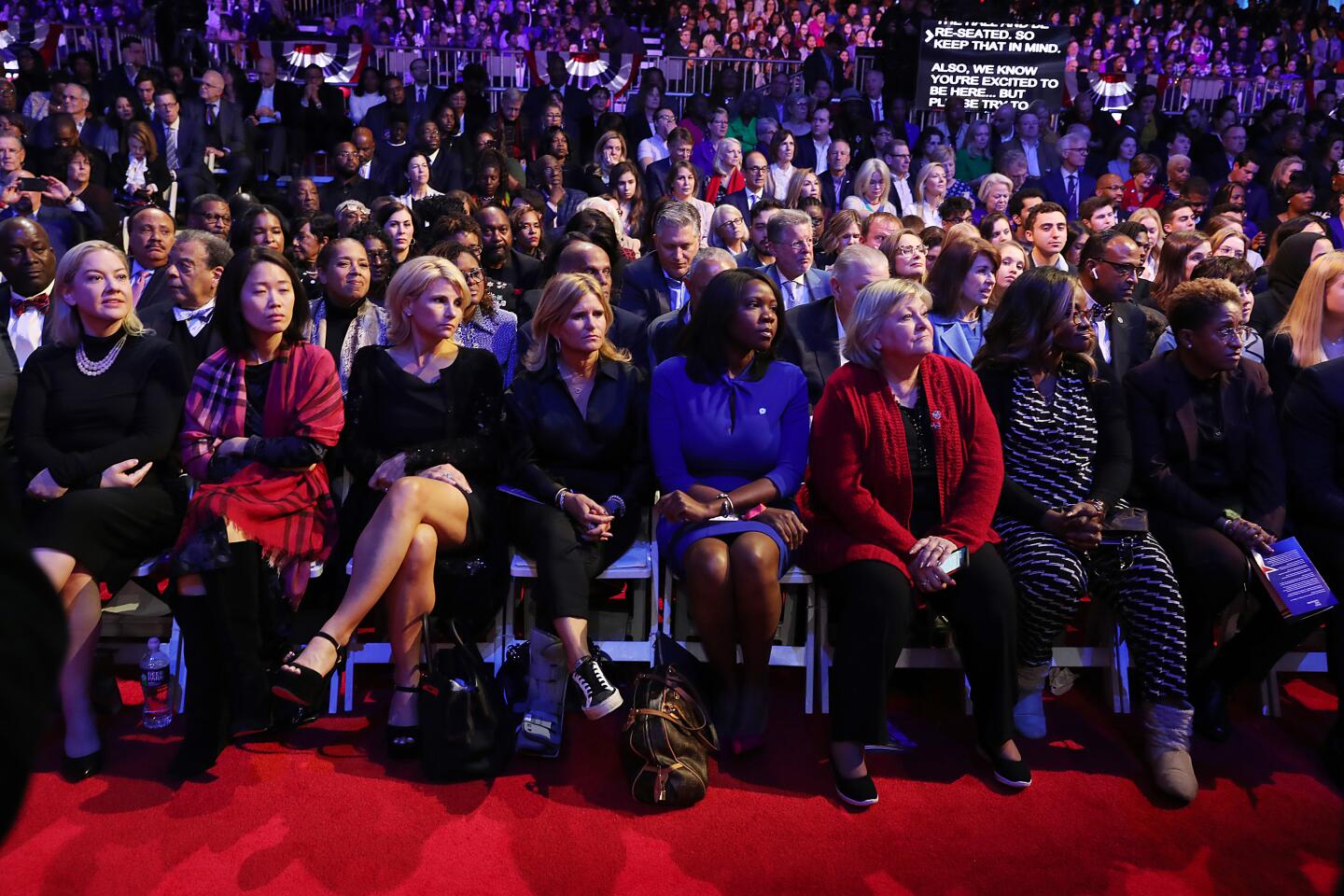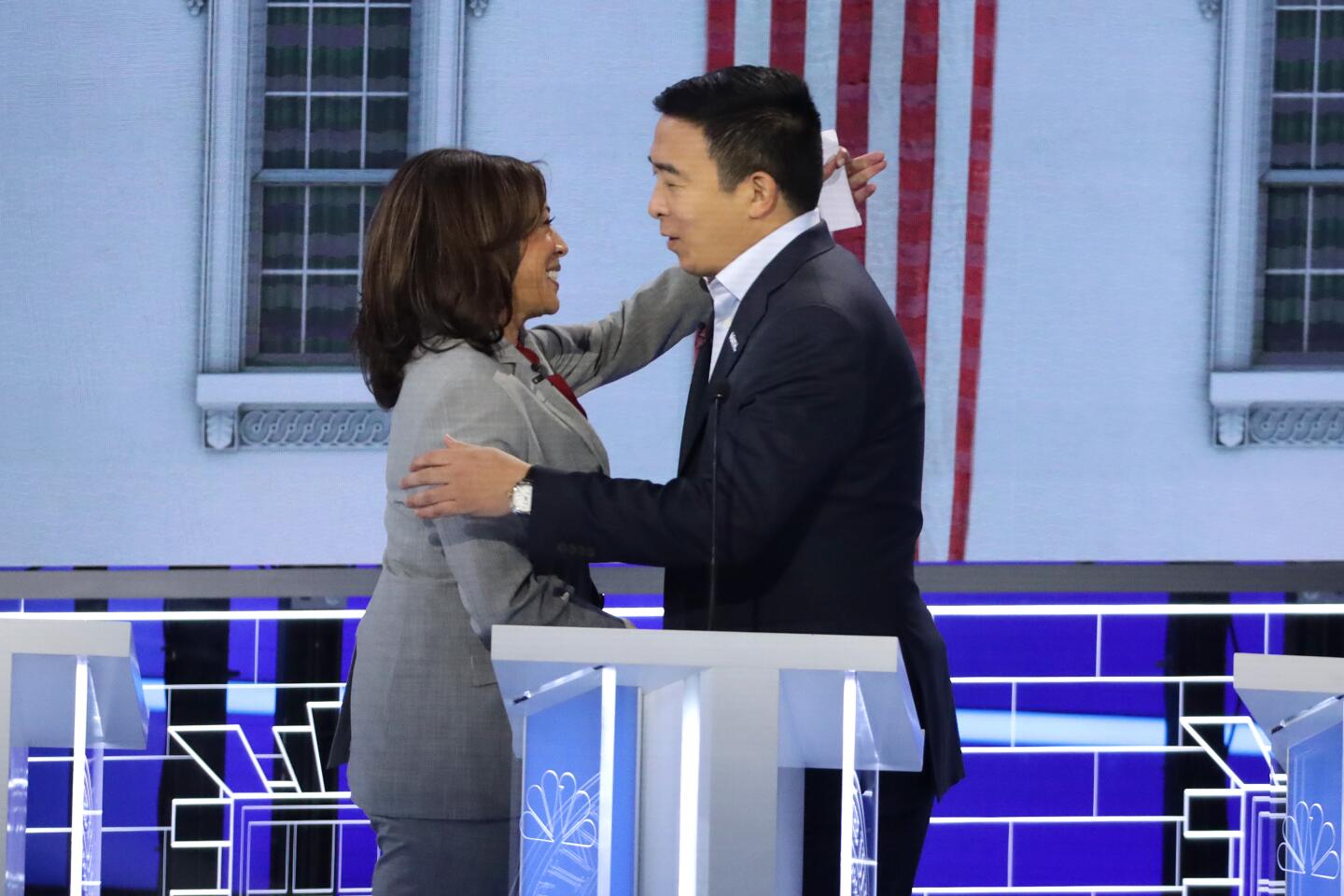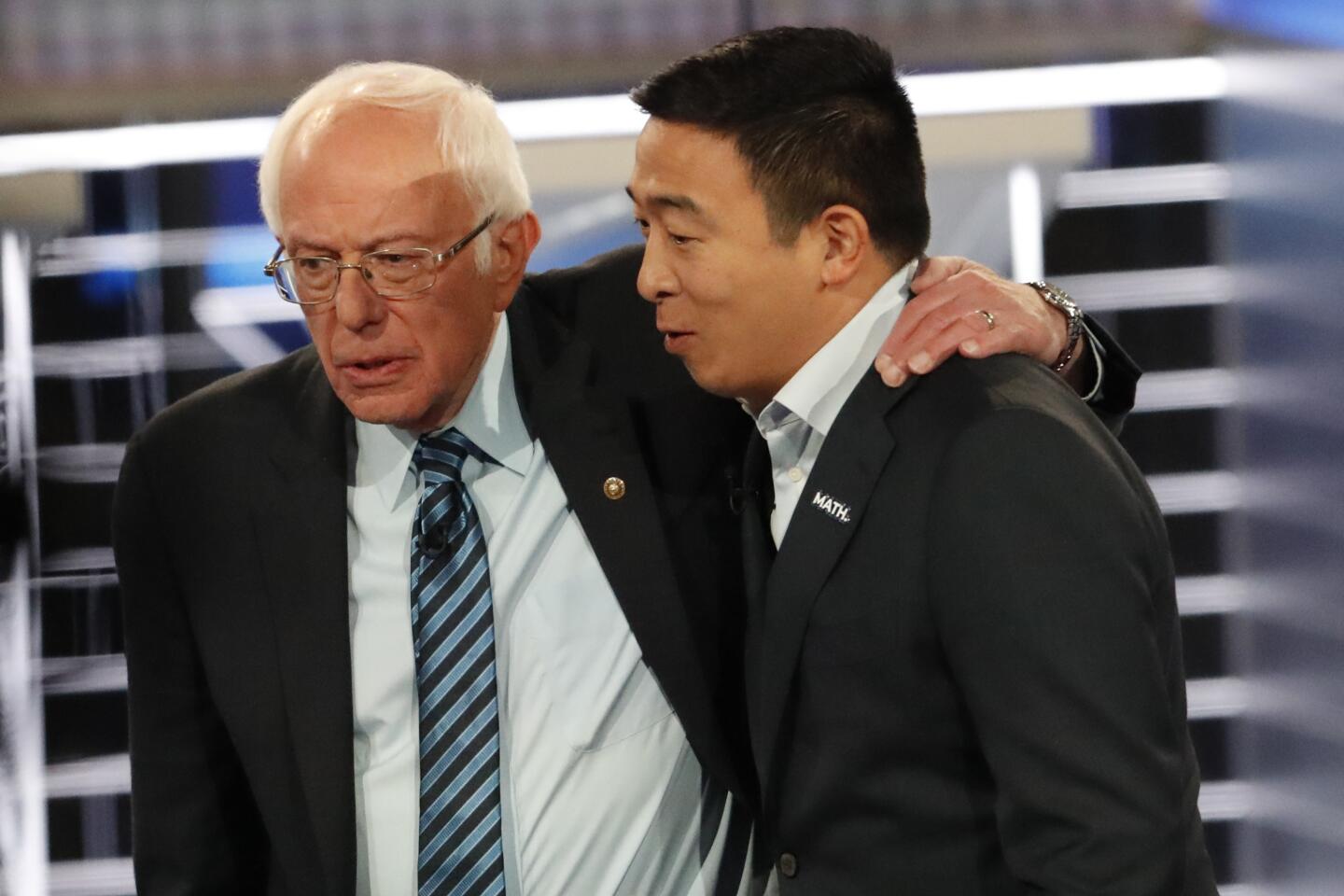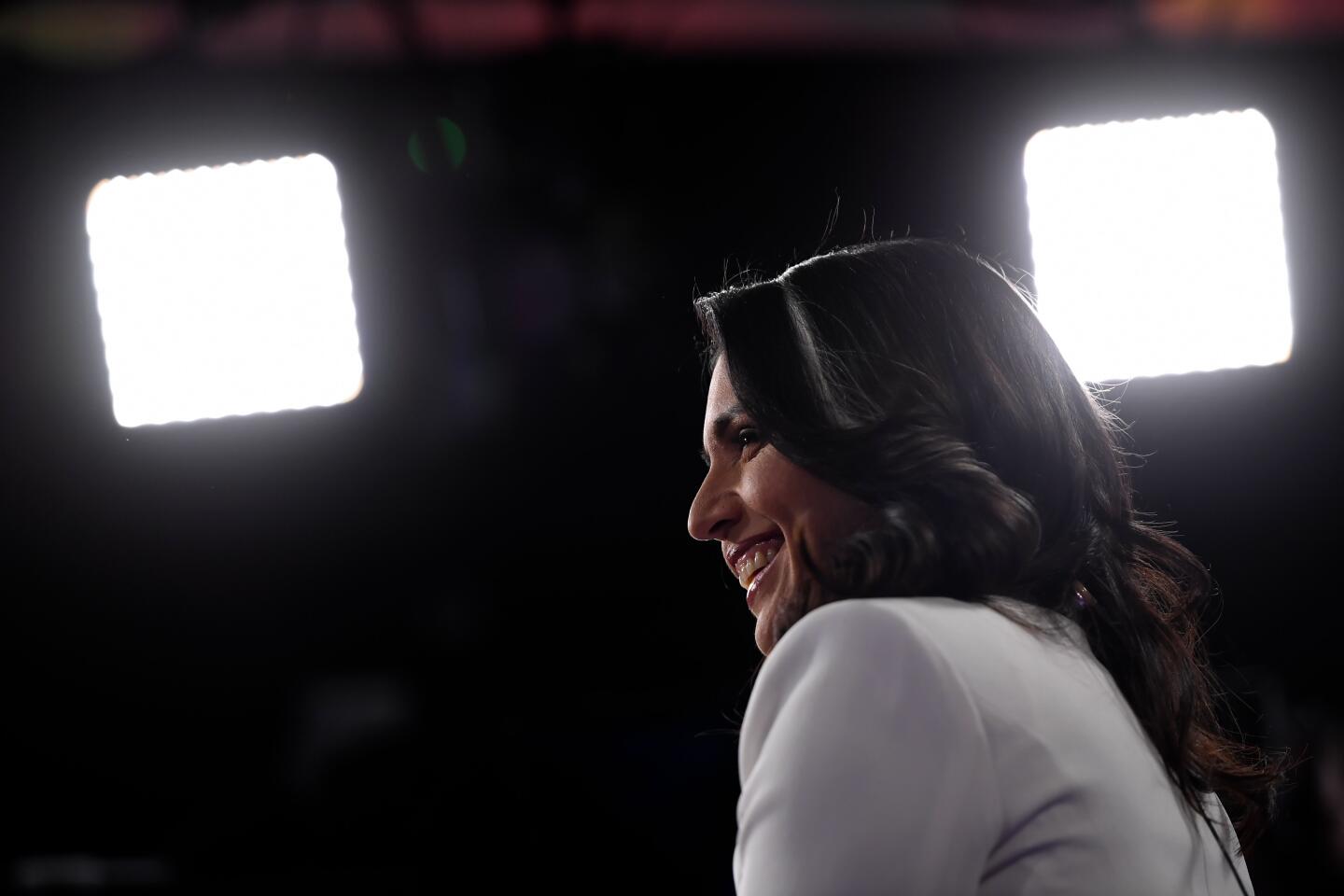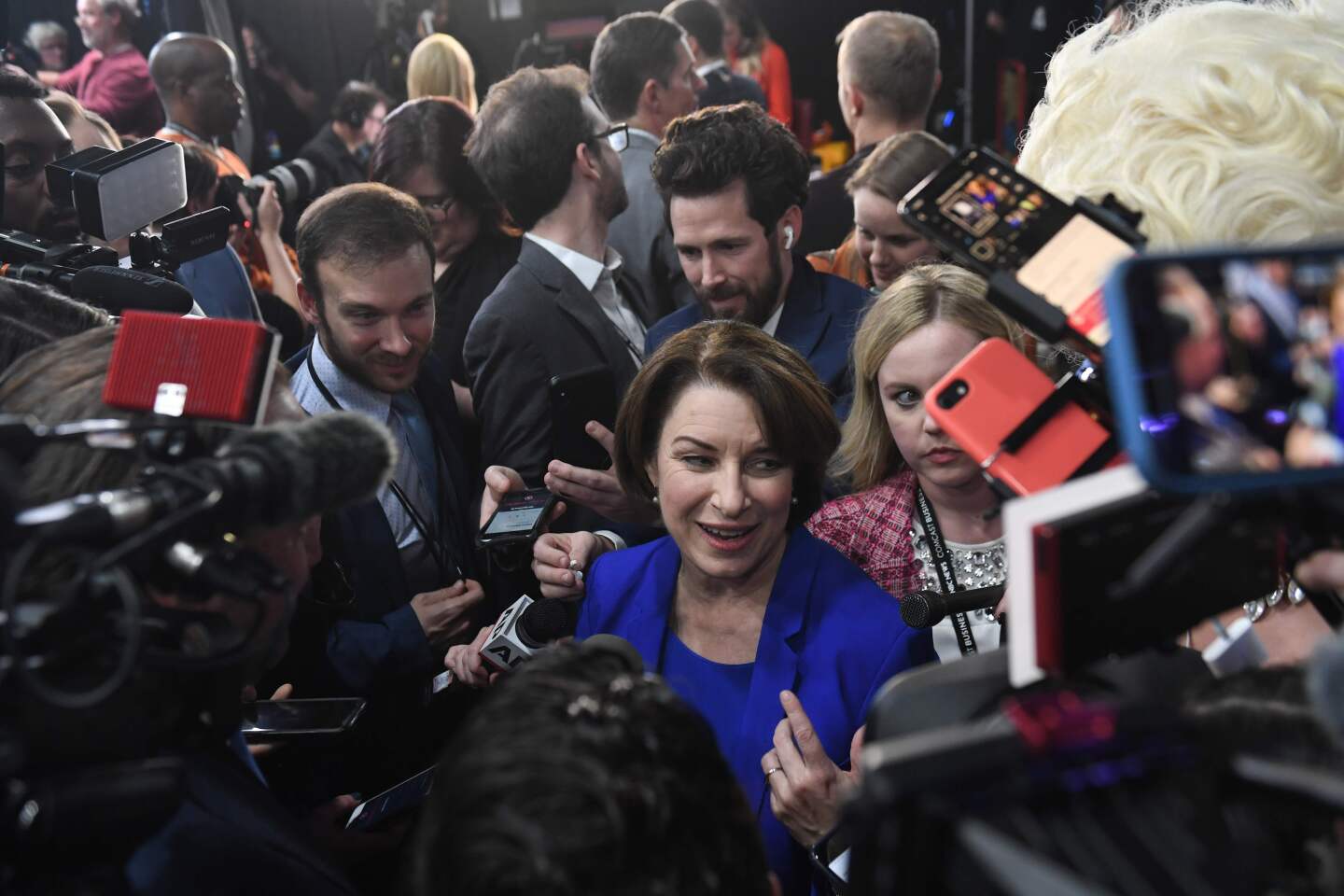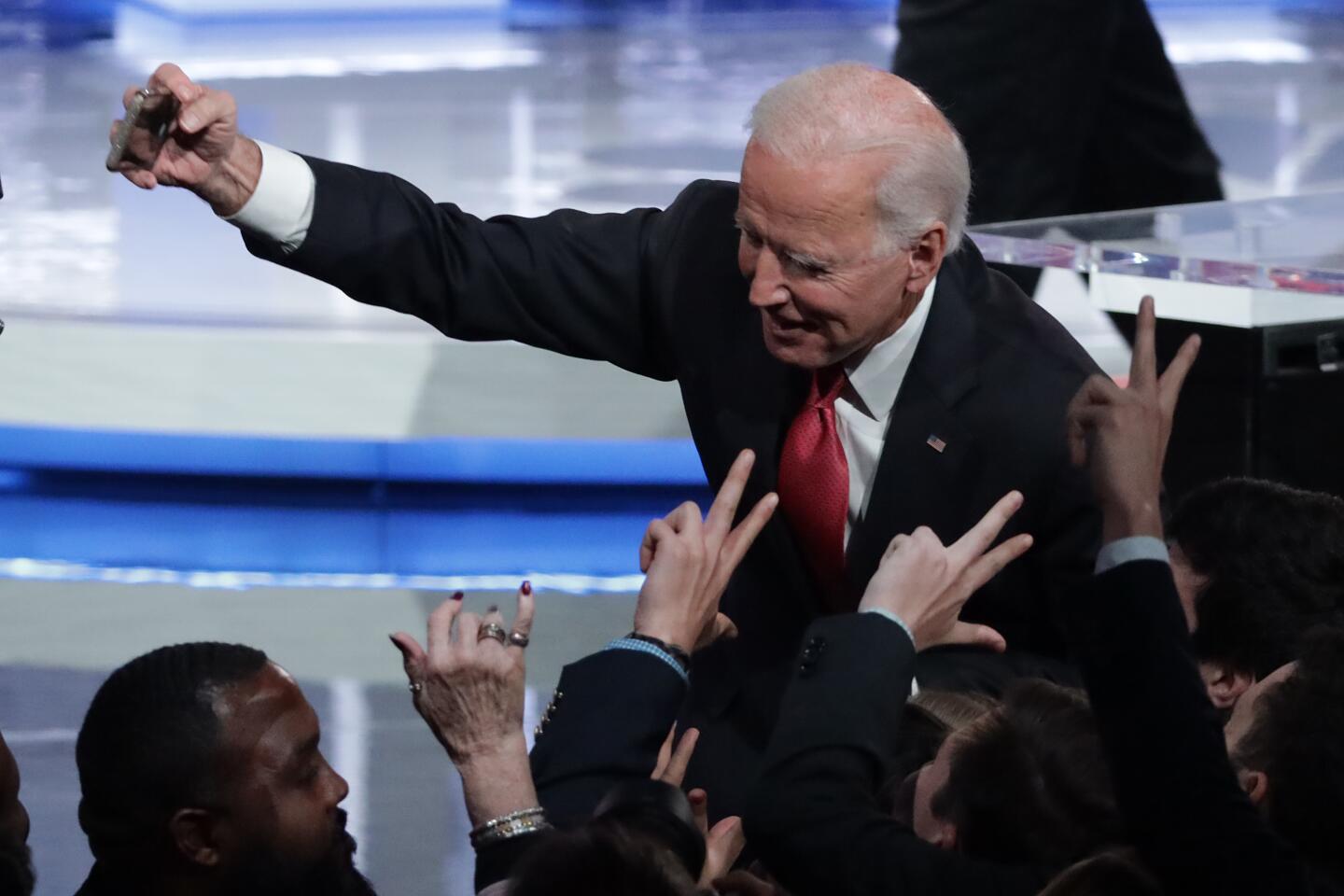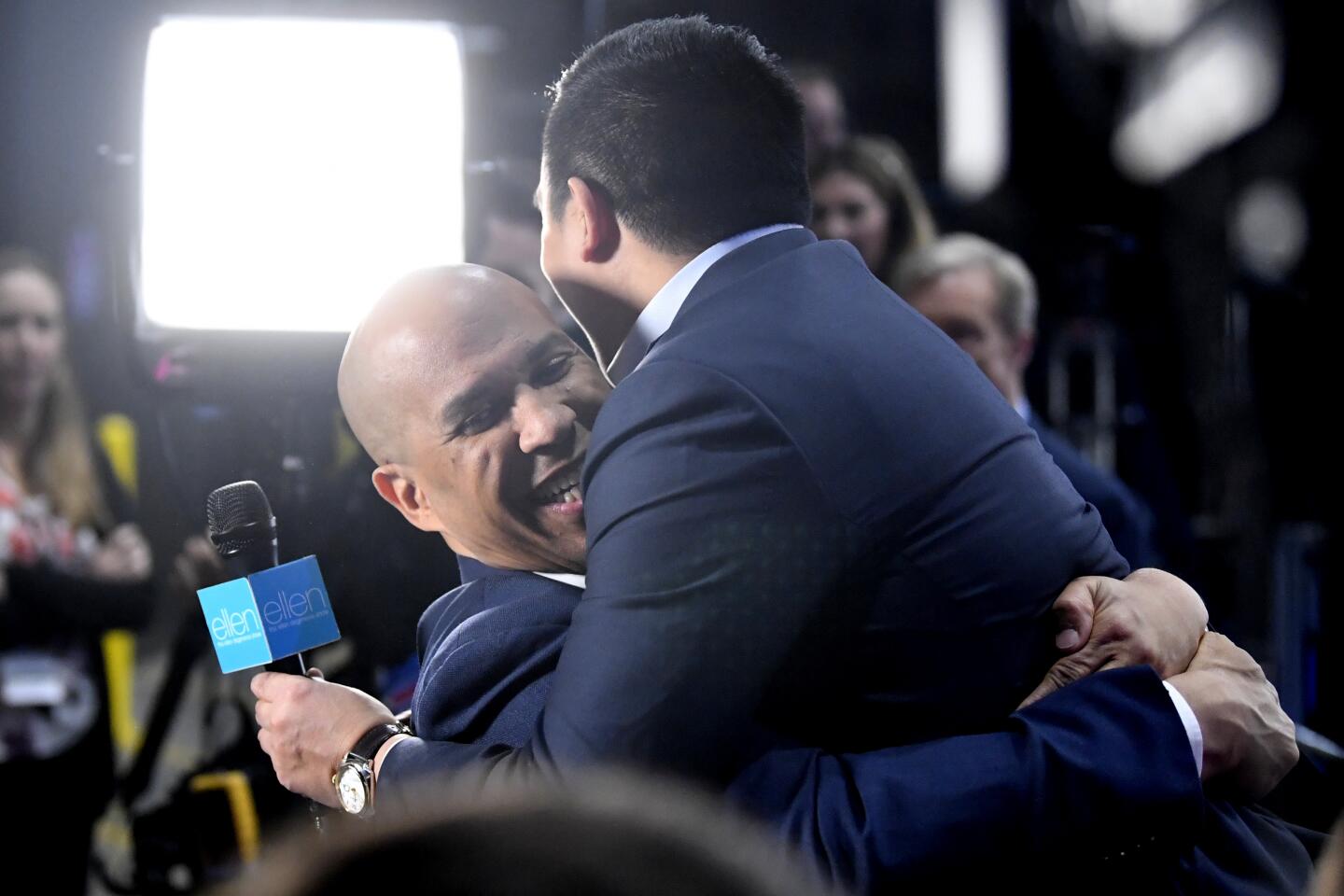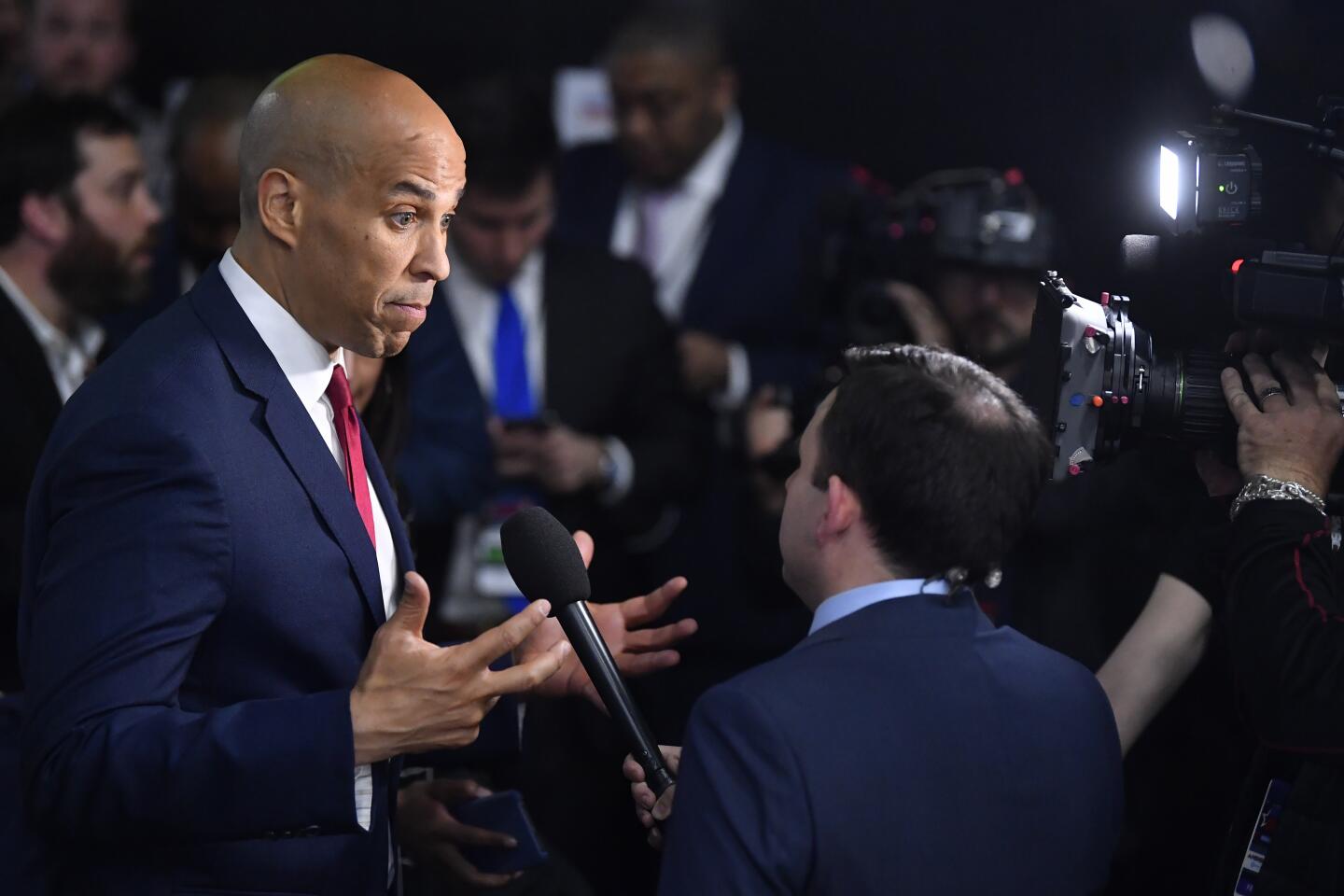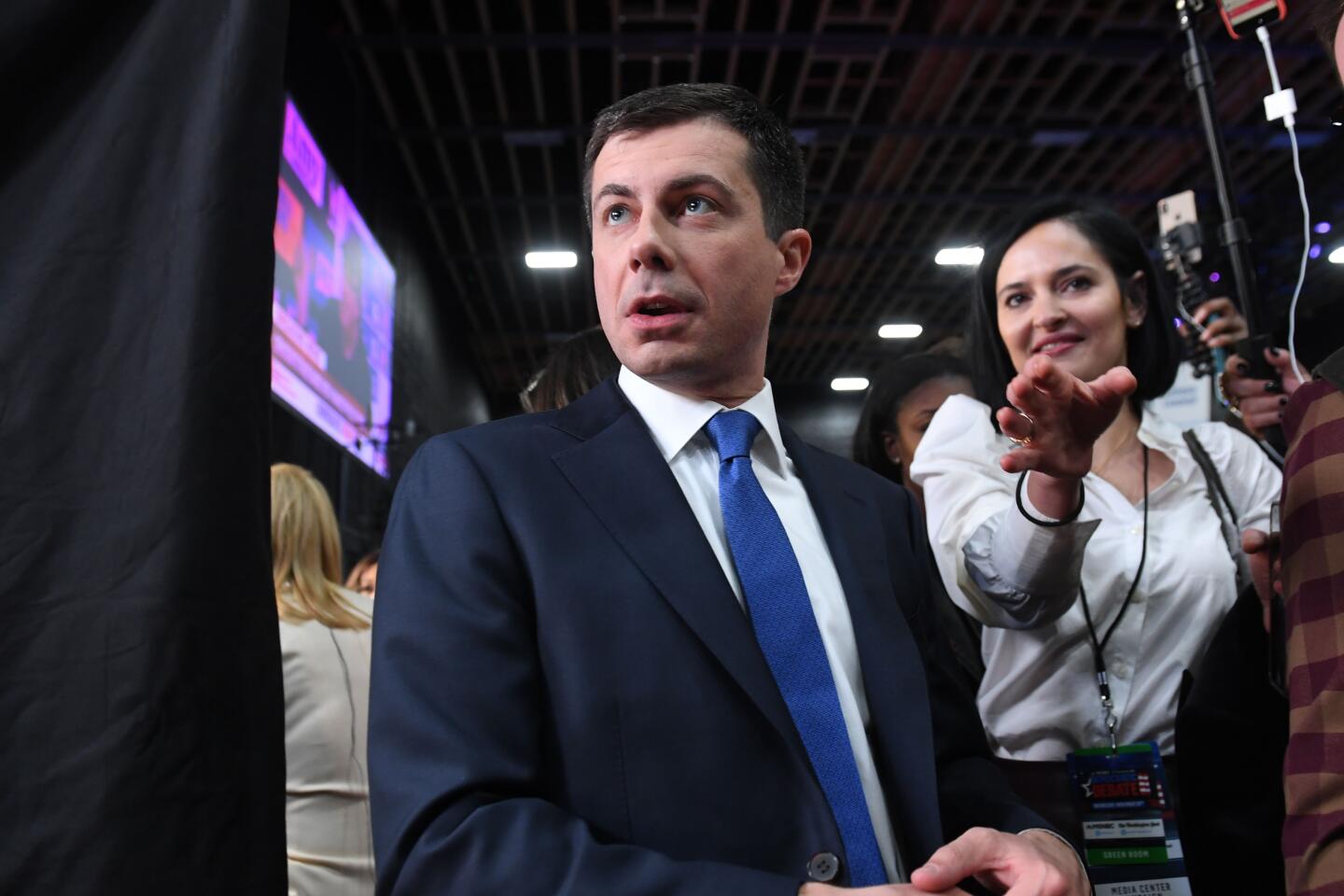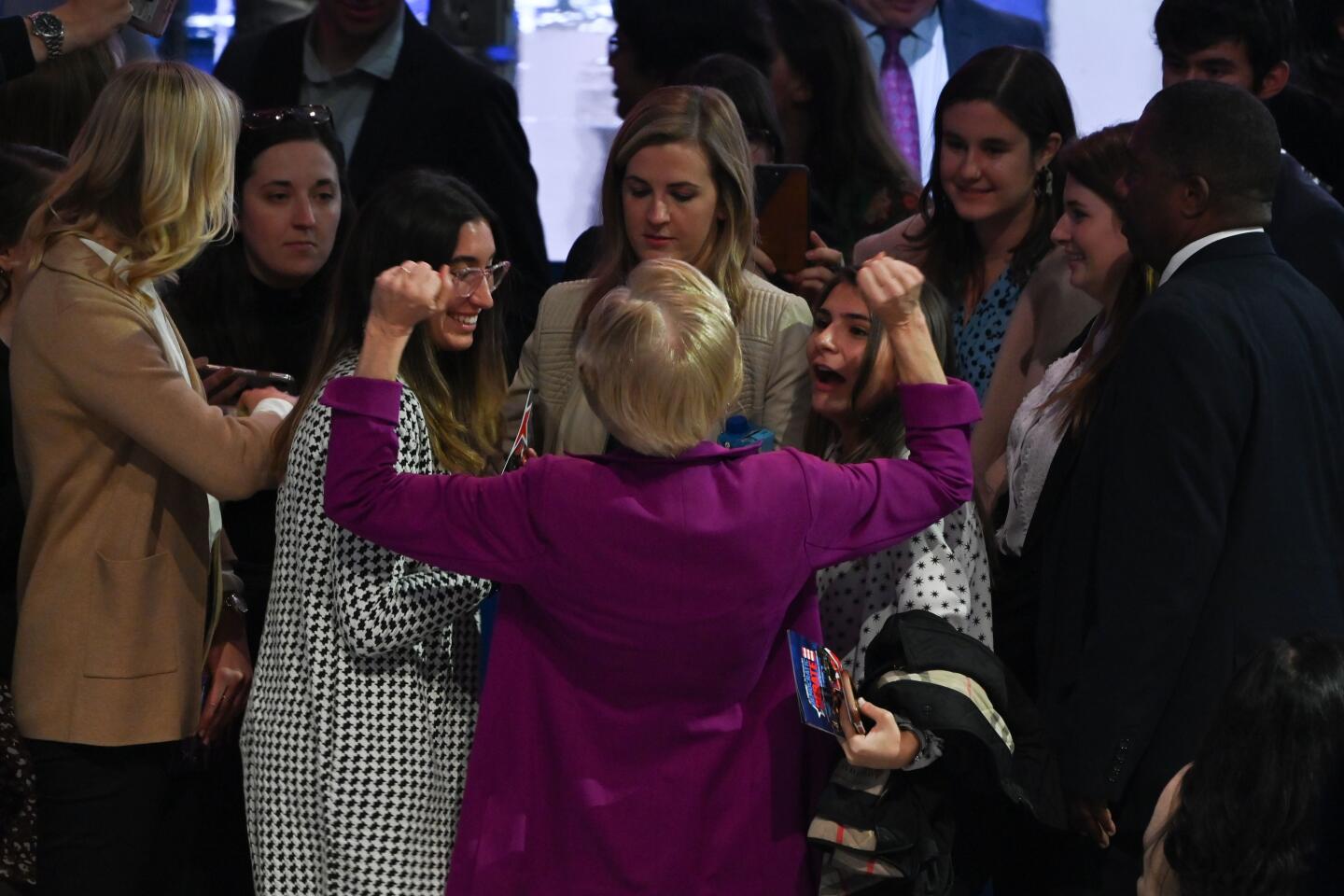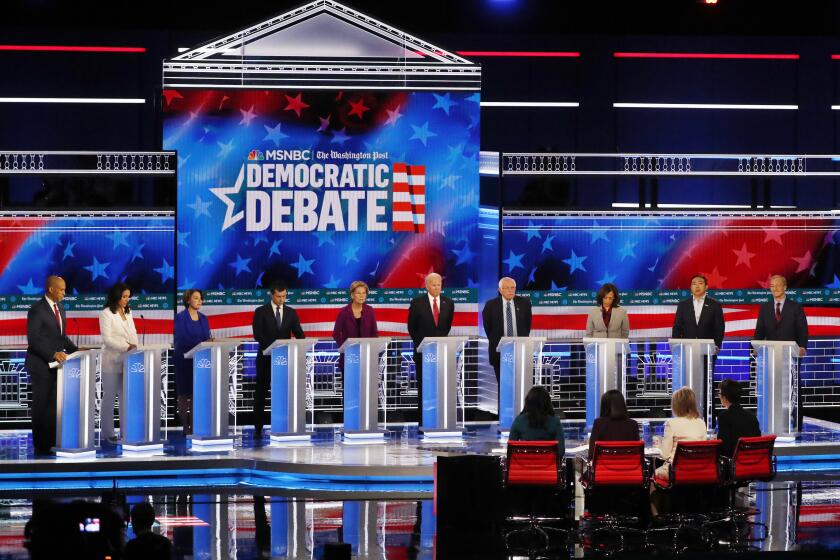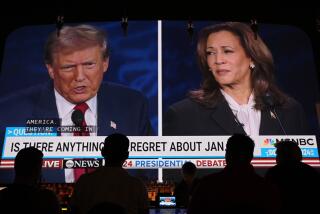Five takeaways from the Democratic presidential debate in Atlanta
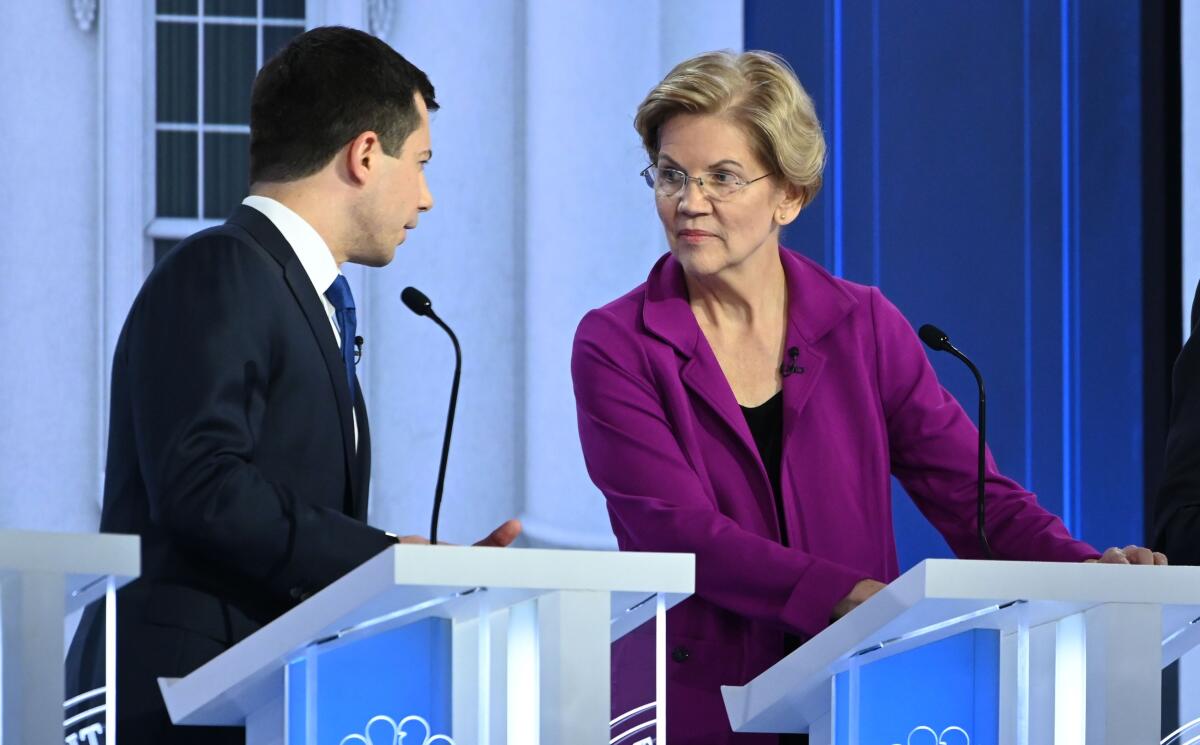
Things were different, but little has changed.
Beto O’Rourke is out. Deval Patrick is in. Michael R. Bloomberg lurks in the wings.
And yet once again, as Democrats gathered beneath the bright lights Wednesday night in Atlanta, Joe Biden and Elizabeth Warren were at center stage and a bevy of also-rans scuffled to make themselves relevant in the fight for the Democratic nomination.
Less than 100 days before the first votes are cast, there is no more clarity to the contest than there was more than 100 days ago, when the series of debates began.
Pete Buttigieg has become an unexpectedly strong contestant. (More in a moment.) Bernie Sanders seems to have mended well from his heart attack. Biden will never convince anyone of his verbal dexterity or political nimbleness.
None of the previous debates did much to lastingly change the race, which has become a four-way scrum among Biden, Buttigieg, Sanders and Warren at or near the top. It remains to be seen whether much changes after this fifth, largely desultory debate.
Until then, here are five takeaways:
Buttigieg’s turn in the barrel
He doesn’t back term limits. He comes from a podunk town. He lacks support among African Americans.
Buttigieg, the boy mayor of South Bend, Ind., started the campaign as a charming curiosity, with his Howdy Doody grin, all-access media strategy and impressive capacity to speak seven languages.
Then the 37-year-old political wunderkind surged into contention in Iowa and New Hampshire, the early voting states that will cull the unwieldy Democratic field.
Now he’s a target, although things could have been a lot rougher; Warren faced much more flak after she bobbed toward the top in polls.
The Democratic debate in Atlanta ended with clashes over issues of race and political leadership, and Pete Buttigieg and Joe Biden found themselves in the hot seat.
Indeed, Buttigieg deftly parlayed knocks on South Bend, population roughly 100,000, into a chance to make his outsider argument for change.
“I get that it’s not traditional, establishment Washington experience,” he said of his limited government resume.
But Washington doesn’t look so great these days, Buttigieg went on. “Where we live,” he said, all that constant political infighting “looks small.”
Later he added, “There’s more than 100 years of Washington experience on this stage, and where are we right now as a country?”
The jabs should be taken as a sign of respect. Candidates rarely stoop to confront a rival of no consequence.
Happy birthday, Joe!
It was nearly 10 minutes into the debate before Biden, the onetime focal point of the contest, was asked his first question.
He used it to deliver the familiar assertion that he is the candidate President Trump least wants to face in 2020, citing as evidence the Ukrainian dirt-for-dollars allegations at the heart of the ongoing impeachment inquiry.
Biden turned 77 on Wednesday and looked every bit his age, with the verbal lapses and sometimes vacant look that have become a signature of his underwhelming debate performances. Many doubt Biden’s durability; it’s one big reason former Massachusetts Gov. Patrick jumped into the race and Bloomberg, the former New York City mayor, is weighing a late entry.
But the rise of Warren and Buttigieg, and their resulting place in the crosshairs, meant less time on the defensive for the shaky national front-runner — a good thing as he stumbled several times, including once again wrapping himself a bit too tightly in Obama’s mantle.
“I come out of the black community,” he said, to laughs from the audience, before clarifying he was referring to his strong support among African Americans.
Many happy returns, indeed.
Warren targeted, again
Massachusetts Sen. Warren didn’t enter the presidential campaign burning with desire to overhaul the nation’s healthcare system.
Her passion is taking on Wall Street and corporate greed and fighting the income inequality that has driven a growing wedge between America’s upper crust and its shrinking middle class.
But she embraced “Medicare for all” — a fetish of the Democratic left — and has cast about as a result, sidestepping questions about how she would pay the gargantuan bill; releasing a high-priced plan that opened her to assault from the more moderate Biden and Buttigieg, among others; then shifting to say she would slow-walk enactment if elected.
Wednesday night, she leaned into more popular aspects of her healthcare plan, saying “on day one as president” she would act to bring down the cost of prescription drugs and vowing to “defend the Affordable Care Act from the sabotage of the Trump administration.”
She soft-pedaled Medicare for all, which would force millions of Americans off their private insurance plans, by saying she would move in that direction only after people “have had a chance to feel it and taste it and live with it.”
That sort of split-the-difference approach, unusual for the bold-stroke candidate, could end up alienating voters on both sides of the issue.
Barack Obama lives on
The former president recently delivered a speech chiding Democratic candidates for their obsession with Twitter’s left-leaning echo chamber and attempts to outdo one another with the bigness and brashness of their plans.
Without mentioning names, the commentary seemed to jab at Warren and Sanders, who harbor the grandest ambitions, and, at the least, nod encouragingly toward those like Biden who prescribe more measured change.
Sanders responded by praising Obama and then immediately said he would scrap his signature achievement, the Affordable Care Act, in favor of a Medicare-for-all plan that the Vermont senator pointedly stated he would introduce the first week he entered the Oval Office.
Biden and Buttigieg tag-teamed in defense of Obama, his former vice president saying he would build on the 2010 healthcare bill and the mayor echoing Obama’s call for a more unifying, less starkly partisan approach.
Democrats have the support to enact gun control and comprehensive immigration reform, Buttigieg said, “if we can galvanize, not polarize, that majority.”
Where Republicans tend to worship their ex-presidents — witness the iconography surrounding Ronald Reagan — Democrats are less enamored. Jimmy Carter goes scarcely mentioned and the impeached Bill Clinton was treated as a pariah when his vice president, Al Gore, ran in 2000.
While any Democrat would surely welcome an Obama endorsement, it remains to be seen whether he’ll be treated by his party’s nominee as more hero or political foil.
Harris Agonistes
California Sen. Kamala Harris has become the incredible shrinking candidate. But she turned in one of her strongest debate performances.
She launched her candidacy in January with a virtuoso rally at Oakland City Hall and has steadily faded from contention since, save for a short time after her rock ’em, sock ’em performance in June’s first debate.
Although she disappeared for considerable stretches — the consequence of being shunted from center stage — she had one of Wednesday night’s most powerful moments when she challenged fellow Democrats to do more than just show up at black churches Sunday as they campaign for the African American vote.
Citing the grim statistics surrounding gun violence and the number of black women who die during childbirth, Harris said passionately, “The question has to be where you been and what are you going to do?”
Harris’ star has fallen to a point where most of the talk around her campaign centers on whether she’ll quit the race before Iowa begins the balloting Feb. 3, sparing herself a load of debt and the potential embarrassment of belly flopping in her home state a month later on Super Tuesday.
It will take more than a single stirring moment to vault her back into serious contention. But it’s a tiny step.
More to Read
Get the L.A. Times Politics newsletter
Deeply reported insights into legislation, politics and policy from Sacramento, Washington and beyond. In your inbox three times per week.
You may occasionally receive promotional content from the Los Angeles Times.

